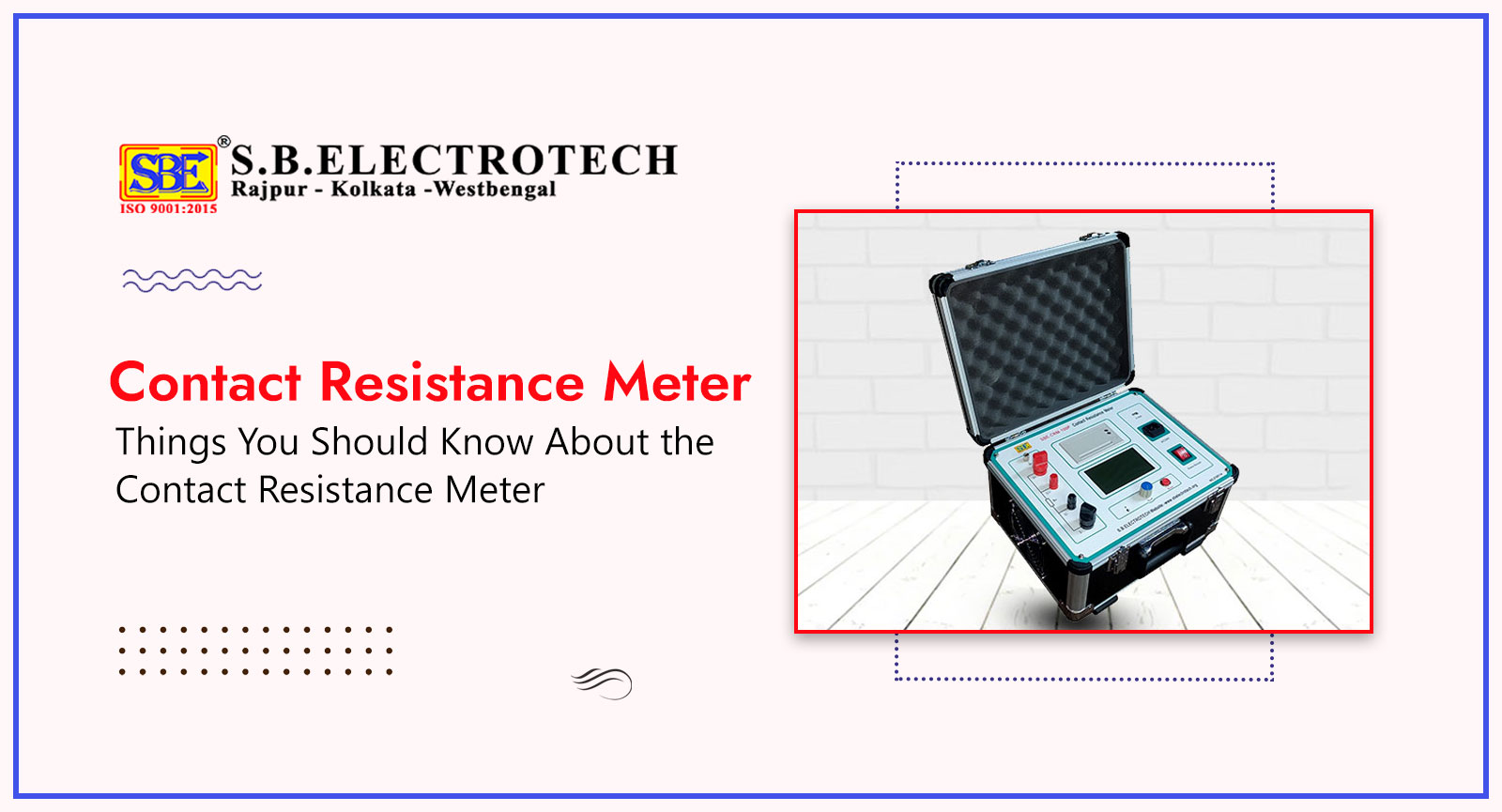In electrical engineering and maintenance to ensure the safety of electrical systems or optimize performance, having the right tools is very crucial. Contact Resistance Meter is one such tool that plays a crucial role in this domain. Often overlooked but immensely valuable, understanding its capabilities and nuances can significantly enhance efficiency and safety in various industries. Let’s go through the details about this instrument to know what makes this device essential and explore the things you need to know about it.
Understanding Contact Resistance
In electrical systems, contact resistance refers to the resistance encountered at the interface between two conductive surfaces. This resistance can lead to energy loss, overheating, and ultimately, system failure if left unaddressed. Hence, accurate measurement and monitoring of contact resistance are vital for system reliability and safety.
Moreover, Contact Resistance Meters, also known as Micro-ohmmeters, are specialized instruments designed to measure low-resistance values with high precision. They employ various techniques such as the four-wire Kelvin method to eliminate lead resistance and ensure accurate readings. These meters generate a small current and measure the resulting voltage drop across the contacts to determine the resistance.
Significant Applications of Contact Resistance Meter
Contact Resistance Meters find extensive applications across diverse industries, including power generation, distribution, aerospace, rail transportation, and manufacturing. They are commonly used for testing circuit breakers, switches, busbars, joints, and other high-current carrying components to detect potential faults and ensure optimal performance.
Importance of Contact Resistance Meter in Preventive Maintenence
Regular maintenance is essential for preventing equipment failures and minimizing downtime. These Resistance Meters play a crucial role in preventive maintenance programs by enabling early detection of deteriorating contacts or connections.
By identifying and addressing issues proactively, these meters help extend the lifespan of electrical assets and reduce the risk of costly breakdowns. Here are some:
-
Safety Considerations
When working with electrical systems safety is crucial, especially when conducting resistance measurements in high-current environments. These resistance meters are equipped with safety features such as overcurrent protection, insulation testing, and voltage interlocks to safeguard operators against electrical hazards. It’s imperative to adhere to safety protocols and use appropriate personal protective equipment when using these instruments.
-
Interpreting Measurement Results
Interpreting measurement results accurately is crucial for making informed decisions regarding maintenance and repairs. Contact resistance values vary depending on factors such as material composition, surface condition, and contact pressure. Understanding the acceptable range of resistance for different components is essential for distinguishing between normal variations and potential defects.
-
Calibration and Accuracy
Contact Resistance Meters require periodic calibration to ensure accurate measurements. Calibration procedures should be performed according to manufacturer recommendations using traceable standards. Regular calibration not only maintains measurement accuracy but also ensures compliance with industry standards and regulations.
-
Integration with Maintenance Management Systems
These meters with maintenance management systems enhance efficiency and reliability. By logging measurement data and generating reports automatically, these systems facilitate proactive maintenance scheduling, trend analysis, and decision-making. This integration streamlines workflow processes and helps organizations optimize asset performance.
Conclusion
As discussed, Contact Resistance Meters are very essential devices for maintaining electrical systems’ reliability, safety, and efficiency. Understanding their functionality, applications, and best practices for usage is essential for maximizing their benefits. By incorporating these meters into preventive maintenance programs and adhering to safety protocols, industries can mitigate risks, minimize downtime, and prolong the lifespan of critical assets.

S.B.ELECTROTECH
S.B. Electrotech is a company that specializes in manufacturing of electrical and electronic testing and measuring instruments. With years of expertise in this field, we ensure to provide high quality, safe, and sustainable products.




